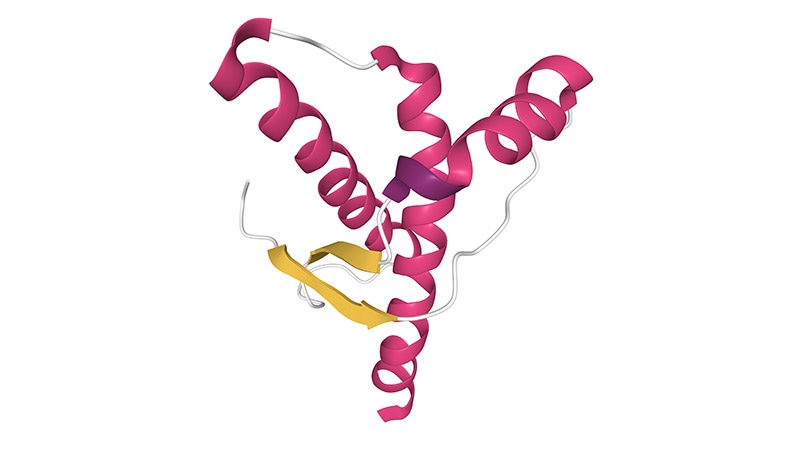Fitness
Data on Protein Misfolding Could Improve Cancer Treatment

“Science is teamwork. Lone wolves no longer exist,” Peter Walter, researcher and professor at the University of California, San Francisco, and former president of the American Society for Molecular Biology, told El Médico Interactivo.
“However, small groups are closer to science because laboratories operate from different working philosophies and in a complementary way. Some approach science more creatively, others with big data. We cannot talk about just one lone wolf, but about different packs of wolves. Each pack has a different way of working, a different approach to doing things,” said Walter.
Discoveries
Walter and researcher Kazutoshi Mori, professor at the Institute for Advanced Study at Kyoto University in Kyoto, Japan, are among the scientists who discovered the biochemical mechanisms that control the correct folding of proteins and, consequently, their proper physiological functioning. This finding has been crucial for understanding the origin of many diseases and for developing new therapies.
The researchers identified the response mechanism that refolds or eliminates proteins when they do not fold correctly, thus preventing them from becoming toxic.
To prevent this toxicity, the cell has a mechanism that allows proteins to be repaired or, if repair is impossible, eliminated. This is the unfolded protein response (UPR), a process that both researchers discovered simultaneously and independently.
“We published separate articles with our findings in the same year, 1993, in Cell. We competed for the same goal, and that competition made progress in this area spectacular,” Mori told El Médico Interactivo.
Therapies
Their findings have revealed how cells control the biogenesis and degradation of proteins, which is essential not only for cellular physiology but also for the pathogenesis and treatment of diseases.
For these discoveries, both scientists have been recognized with the BBVA Foundation Frontiers of Knowledge Award in the Biology and Biomedicine category. The awards were given at the foundation’s recently ceremony in Bilbao, Spain.
“Walter and I identified the molecular mechanisms of the UPR, which has subsequently allowed many scientists to research in these fields,” said Mori. Specifically, they identified the enzyme inositol-requiring enzyme 1 (IRE1), which acts as a sensor sending alert signals to the cell nucleus to correct faulty folding and eliminate misfolded proteins.
The researchers hope that their findings can inspire the development of new effective treatments for multiple diseases and contribute to acting on the aging process. “Parkinson’s disease, Alzheimer’s disease, Huntington disease, and possibly amyotrophic lateral sclerosis [ALS] have in common that, at a certain age, patients develop brain problems due to the accumulation of misfolded proteins,” they said.
ALS
In fact, some molecules capable of mitigating protein folding failures are already being used to combat ALS and some liver disorders.
Walter highlighted the potential of this therapeutic approach for cancer because cancer cells produce many misfolded proteins. “In cancers, the response to misfolded proteins provides disproportionate protection to these cells and keeps them alive,” he said. Therefore, the cell biologist emphasized, “inhibiting this response would eliminate that inappropriate growth and allow us to act selectively on cancer cells in the treatment of the disease.”
As researchers, they are satisfied with their findings, but even more so when they think about their translation to the clinic. “The purpose is not only in the knowledge we have created; this is just the basis, the foundation to see where we should and can apply it to help humanity,” said Walter.
Chaperones
Mori highlighted chemical chaperones as a successful applications of this research. “Because they are small particles, we will be able to reach the cells and delay, for example, the effects of multiple sclerosis. In fact, a related medication has already been approved in the US and Canada,” he said.
“We know what is required in cancer cells where there are many errors, with many misfolded proteins, which is when the enzyme IRE1 is activated. We need chaperones, proteins present in all cells, that keep cancer cells happy. But we do not want this. We want to eliminate them,” said Walter.
“By inhibiting this process, we can develop new nontoxic chemotherapies that can help patients explore their situation. This occurs in all cancers because all have unfolded proteins. All have the activator IRE1. Therefore, generic chemotherapies that apply to all cancers, and not just chemotherapies specialized for each cancer, can be developed.”
Research
The researchers hope that these therapies will be used widely. “We are already in collaboration with a company for which we are developing anticancer treatments,” said Mori.
The two scientists agreed on the need for governments and institutions, in these times of brutal confrontations and relentless wars, to allocate more budget so that researchers can work. “It would be convenient for them to stop and think about investing more in people who research and manage to give more life to life, to invest in research and not in weapons,” they said.
This story was translated from El Médico Interactivo, which is part of the Medscape Professional Network, using several editorial tools, including AI, as part of the process. Human editors reviewed this content before publication.










